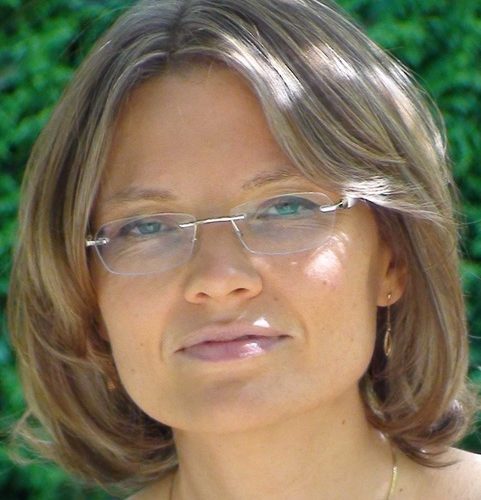Keynote #1
Title: Conciling privacy rights with security needs
Abstract: Privacy is regularly violated by states to keep control and power, by platforms to make money, and develop their business… On the other end, security is needed, e.g. for tracking down criminals, harassers, for thwarting terrorism attacks. Moreover, the original purpose for which a technological solution is developed is often diverted to serve other purposes and interests, which are generally not in favor of privacy, e.g. face recognition to detect the non-wearing of mask, or worse to identify individuals as part of an ethnic group.
This keynote addresses the positioning of privacy vs security, in terms of rights and needs and scientific properties. Discussions are then conducted about the technologies able to concile privacy rights with security needs, and the idea to lock the originally intended uses of a solution by the technologies to ensure that no diversion is possible. An introduction to the multidisciplinary Institut Mines-Telecom chair Values and policies of personal information is also presented with several covered research topics and results.

Maryline Laurent
(Télécom SudParis, France)
Bio: Maryline Laurent is Full Professor with Télécom SudParis, Institut Polytechnique de Paris. After taking the lead of the research team R3S (Network, Systems, Services, Security) of the CNRS SAMOVAR lab in 2013 for 7 years, she currently heads the RST department (Telecommunication Networks and services) of Télécom SudParis.
She is co-founder of the multidisciplinary research chair of Institut Mines-Télécom “Values and Policies of Personal Information”. She is also associate editor of Annals of Telecommunication journal and Security and Communication Networks. She is editor of several books including “Digital Identity Management” and guest editor of several special issues in the privacy area.
She has supervised 20 Ph.D. theses and she has published more than a hundred papers in highly ranked international journals and conferences. Her research topics are related to network security and privacy mechanisms, including protocols and functions, applied to clouds, the Internet of Things, and identity management. She is expert for European Commission (H2020), and French ANR research agency.
Keynote #2
Title: End-2-End Security and Resilience in Cyber-Physical and Autonomous Systems
Abstract: Cyber-Physical and Autonomous Systems have become the only solution to manage the increasingly prevalent Internet of Things (IoT) ecosystems, in areas such as smart cities, transportation, and surveillance, where devices can number in the hundreds of thousands.
The scale and control of these systems are beyond human ability, where unsupervised connectivity potentially exposes an alarming number of security vulnerabilities with potential catastrophic impacts on citizens, cities, or even national infrastructures if compromised.
At TII’s SSRC, we have created a fully autonomous system that manages a swarm of drones to carry out dedicated missions. This system has built into it end-to-end security and resilience – designed from basic building blocks – and this is pervasive throughout the whole system. The talk will describe the research and development that we are undertaking with our academic and industry partners to achieve this vision.
Many different technologies are used including machine learning, trusted execution environments, hypervisors, hardware root of trust, functional encryption to protect privacy, secure (including mesh) communications, and hardened software stacks (including secure development methodologies). All our building blocks are built on open-source hardware and software with total transparency and modularity to ensure that security is pervasive.
Our goal is to enable new usage models in Cyber-Physical and Autonomous Systems that enhance the lives of people with confidence in safety.
This keynote will describe the challenges and opportunities in enabling security and resilience in such systems.

Shreekant (Ticky) Thakkar
(Chief Researcher at Technology Innovation Institute, UAE)
Bio: Dr. Shreekant (Ticky) Thakkar is Chief Researcher at the Secure Systems Research Centre at the Technology Innovation Institute (TII), a cutting-edge UAE-based scientific research centre. He is responsible for carrying out advanced research that makes the planet safer and more secure, with a focus on providing end-to-end security and resilience in cyber-physical and autonomous systems.
Dr. Thakkar’s career is punctuated by industry firsts and successes that have strengthened revenue, profit, and competitive advantage for Fortune 500 firms, as well as start-ups and entrepreneurial divisions.
Dr. Thakkar is a hands-on leader with an invaluable blend of strategy development and tactical execution; an implementer and dedicated “doer” who delivers corporate vision by building, leading, mentoring and supporting highly effective, diverse, and collaborative advanced development, engineering/software engineering teams across different geographies.
Before taking on his current role, Dr. Thakkar was Chief Scientist and Executive Vice President of Engineering and Technology at DarkMatter, a cyber-security leader based in the UAE. In this capacity, he was instrumental in developing an engineering organization of 500 people from a startup team in four geographical locations, delivering two generations of innovative secure smartphones and applications, and a secure VPN appliance that contributed significantly to the company’s annual revenue.
In prior roles in the United States, he served as Chief Solutions Architect at Qualcomm Data Technologies, and as the Chief Technology Officer in the Personal Computing Group, and as Vice President and Fellow at HP’s Emerging Computing Lab.
Earlier in his career, he completed 21 years at Intel Corporation in roles including Intel Fellow and Chief Systems Architect – Mobile Systems Technologies.
Dr. Thakkar holds a PhD and an MSc, both in Computer Science, from the University of Manchester (UK). He also earned a BSc in Computer Science and Statistics from University College London. He holds more than 83 patents and has published 31 technical papers and over 4,700 citations in Google Scholar.
Keynote #3
Title: Why doesn’t cybersecurity work?
Abstract: The news regularly reports incidents and problems related to poor cybersecurity. It is clear that the measures put in place are not sufficiently effective to counter risks and cyberattacks.
Looking at the reasons for cybersecurity failures in a holistic way allows us to better understand the situations faced by individuals, organizations, and States and to propose perspectives and levers of action to contribute to making cybersecurity efficient and effective for all.

Solange Ghernaouti
(Swiss Cybersecurity Advisory & research Group, University of Lausanne)
Bio: Solange Ghernaouti, director Swiss Cybersecurity Advisory and Research Group, professor of the University of Lausanne is an active independent cybersecurity advisor, an influential analyst and a regular media commentator. She offers strategic and practical advice, targeted research, and education in Cybersecurity, Cybercrime, Cyberdefence, Cyberpower and Artificial Intelligence related issues.
Solange holds a PhD in Computer Science & Telecommunication (Paris VI University), is a former auditor of the Institute of Advanced Studies in National Defence. She has authored more than 300 publications and thirty books including “Cyberpower: Crime, Conflict and Security in Cyberspace” (translated in China). Professor Ghernaouti is Chevalier de la Légion d’Honneur, a member of the Swiss Commission for UNESCO, a member of the Swiss Academy of Sciences and has been recognised by the Swiss press as one of the outstanding women in professional and academic circles.





